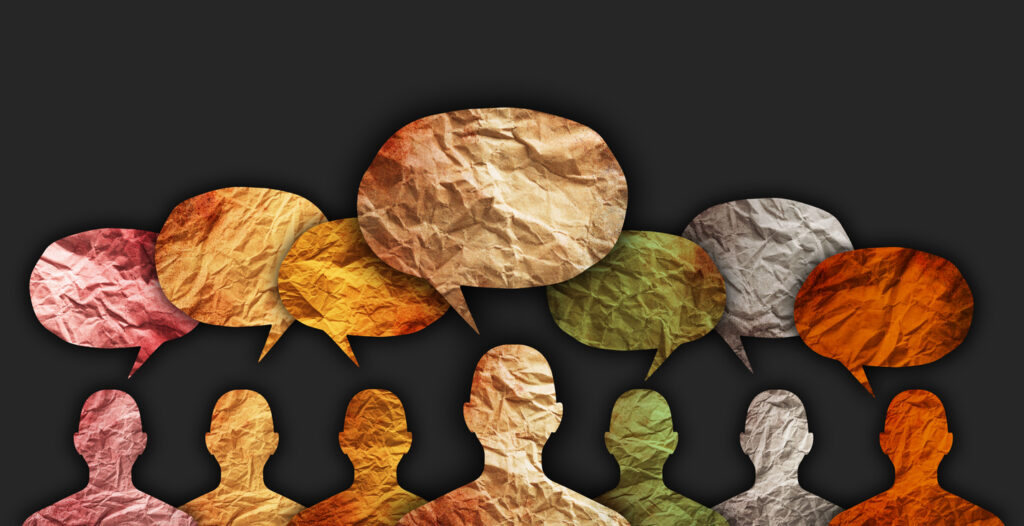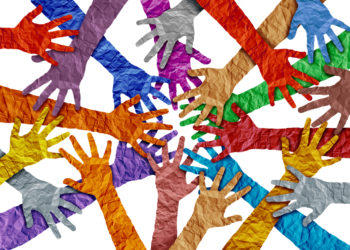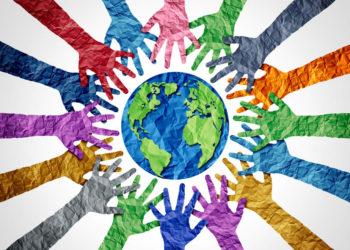In 2020 as we went through a global lockdown due to COVID-19 (which has not gone away), the fact that we couldn’t help but be aware led to the world watching the murder of George Floyd. His untimely and inhumane death sparked many a conversation about the need for systemic changes across all industries including scholarly publishing. We saw many black squares on Instagram, company statements condemning what many Black people, including myself have known to be true treatment of us, DEIA (diversity, equity, Inclusion, and accessibility)-based roles created within organizations, policies and programs to show people-industries-companies are listening.
We have now entered 2023, on 3 January, Keenan Anderson — a 31-year-old school teacher – was killed in LAPD custody. He flagged down the police after a traffic violation for help and was in turn tasered six times leading to cardiac arrest. His last words were “They are trying to George Floyd me”. We cannot have George Floyd used as a verb, and yet it is happening. I can’t help but ask where is the outrage, the company statements, the check-ins with friends and colleagues who might be affected? Now that the world has started moving again, the concern has arguably been minimized on a global scale. Despite millions being funded into both UK and US institutions in the name of change, with the return of busyness…what has actually changed?

I have always been an advocate for change, and it is not lost on me that since 2020 I have been afforded more opportunities relating to DEIA than before; including this platform. Jerrod Carmichael remarked at the Golden Globes that he was a diversity hire by the Hollywood Foreign Press Association in the wake of George Floyd’s murder. I’m sure many of us have wondered whether that has been the case for the positions we have come to hold since 2020. That being said, many of us, myself included, have been putting in the work and pushing the needle for a long time before getting a seat at the table. We were owed our dues and credit before then. Now that we have been offered a seat at the table, are we being heard in the room?
As I’m writing this, Tyre Nichols has died after a horrific assault by Memphis police officers who have all been dismissed and charged, which in my opinion seems to be the swiftest action that has ever been taken regarding police brutality (the irony is not lost on me). The race of the officers does not take away from the ingrained systemic racism, in fact it only further explains it.
NB: Please be mindful about sharing the video, this is a trigger and a trauma for many people. If you feel an urge or a need to see it, consider why that is and what do you gain from it?
Now is the time to reflect on the intentions, statements and initiatives that were made when the world was at a standstill. Are you using the toolkits that were shared and championed online? Are you utilizing the DEIA roles and committees that have been implemented within your organization? Do those who were appointed have a genuine voice and space within the structure and system? Are you doing more than acknowledging Black History Month and Pride with lanyards and posters?
The Scholarly Kitchen had some encouraging and valuable guest posts in 2022 discussing lived experience within the scholarly community. I would encourage reading the posts below if you haven’t and consider how to implement the actions if you have:
- Reducing the Burden of Diversity Tax – Post One
- Reducing the Burden of Diversity Tax – Post Two
- Reducing the Burden of Diversity Tax – Post Three
- Reducing the Burden of Diversity Tax – Post Four
- 10 Quick Wins to Make Your Organization More Disability Inclusive
We’ve seen conferences host DEIA-related themes or specific days over the past few years, which is great, but one day isn’t enough. These conferences are annual and this needs to be ingrained as much as any issue within the scholarly communications industry. It needs to run through all parts of the system and be a constant if we want to see real change. I would hope that we continue to see DEIA as a prominent feature on conference programs and training events going forward with a shift from theory to action and prioritize lived experiences.
Now that the world is back to a noisy and busy place, and we aren’t at a standstill — being forced to witness what many of us knew to be true, are you still doing the work it takes to make positive and impactful change? Are we continuing the work to break down systems that we have been told we need but we know are no longer fit for purpose? Are we speaking up to change the policies and unwritten industry rules that are no longer fit for purpose?
Allyship is important in this journey and for all those who signed, published, and promoted commitment statements or shared your sadness at the state of injustice, you are needed to keep going with actions that lend themselves to changing the systems that create an imbalance. Saying you are an ally; does not make it so. Those who are marginalized have to feel supported by you and your actions for it to be true. It’s a lot of work and some of it won’t be comfortable, but that doesn’t mean it should be overlooked. If those of us who are marginalized could do it on our own, we would have made all the necessary changes to dismantle systemic injustice by now. If you have a platform, consider how are you using it and how are you gaining awareness of the disparities? Are you willing to share your platform with someone who may not have the opportunity but has the skills? Are you lifting the voices of lived experience?
Change does not come at the first step, and you cannot stop at the first hurdle or the second or the third. We all have to keep going and do the work. For those of us who are marginalized and continually doing the work to change an environment, a system, an industry that does not always feel welcoming to us, it can be exhausting. I have personally burned out from this in the past, so please protect your peace, rest when you need to and know that what you are doing matters and is valued.
Discussion
9 Thoughts on "What Have You Done for DEIA Lately?"
Dianndra, thank you for this post and all that you do for marginalized communities in scholarly publishing. I agree wholeheartedly that DEIA efforts should be viewed as continual rather than a series of check marks and that actions mean much more than words.
I agree with you, Tony and Dianndra! Thank you, both! I appreciate you both and your continued tireless efforts to bring about the needed change.
Thank you Tony and Chhavi for your continued support and work to change the industry. It means a lot to me.
Keeping DEIA in front of us every day is so important. Thank you for rolling up your insights from 2022. Elevating this work as part of conference programs is a great thing… when people bring the conversations into their organizations. In 2023, C4DISC is sponsoring an industry-wide look at Workplace Equity. We will follow up the original 2018 survey that benchmarked demographics and perceptions around topics of DEI. By the end of this year, we’ll see whether there are real and perceived changes for the better…or worse. By then, I hope there will also be some justice for the families of Keenan Anderson and Tyre Nichols. Say their names.
Agreed; thank you for sharing these updates, Anne! There’s much that still needs to be done. The upcoming Workplace Equity survey will help us assess the changes to make the scholarly publishing space more equitable 🙏
Thank you Anne, I look forward to the update from C4DISC and I appreciate all the work done by C4DISC to date. I can only hope we get justice for Keenan Anderson, Tyre Nichols and those who have since lost their lives in brutal conditions.
and then more news today out of Richmond, VA… you’re right to point out the brutality doesn’t stop.
Apologies it took me18 days to read this post; long reading queue! Just back from ER&L 2023 and a thorough walk through the exhibit space and through the event and presentation spaces made clear our hiring across the industry has not changed in the past three years. DEIB initiatives will have “worked” and have “teeth” when the faces in our gatherings reflect the faces in our broad society and when the performance measures across our organizations penalize leaders for not making their organizations reflect the broader society.
Agreed David, thanks for taking the time to read. We do need to see a change in the faces of the industry to change how we are taking on DEIB and I encourage the industry and organisations in it to hold themselves accountable with what is and isn’t working.



